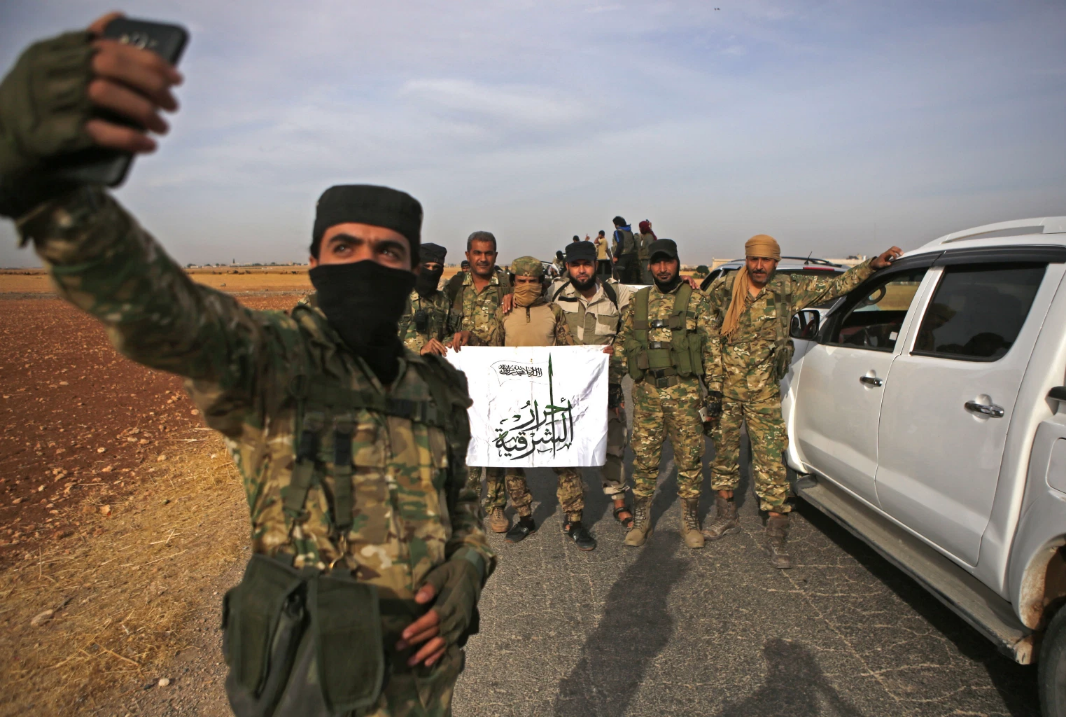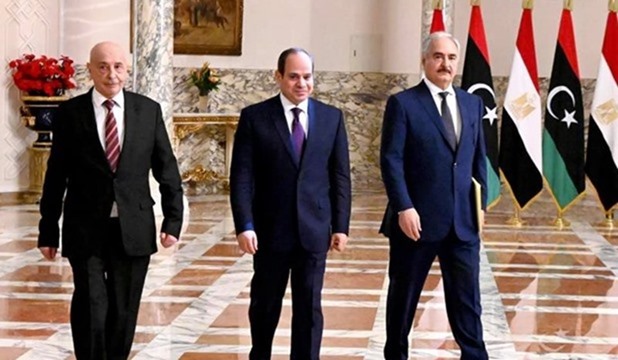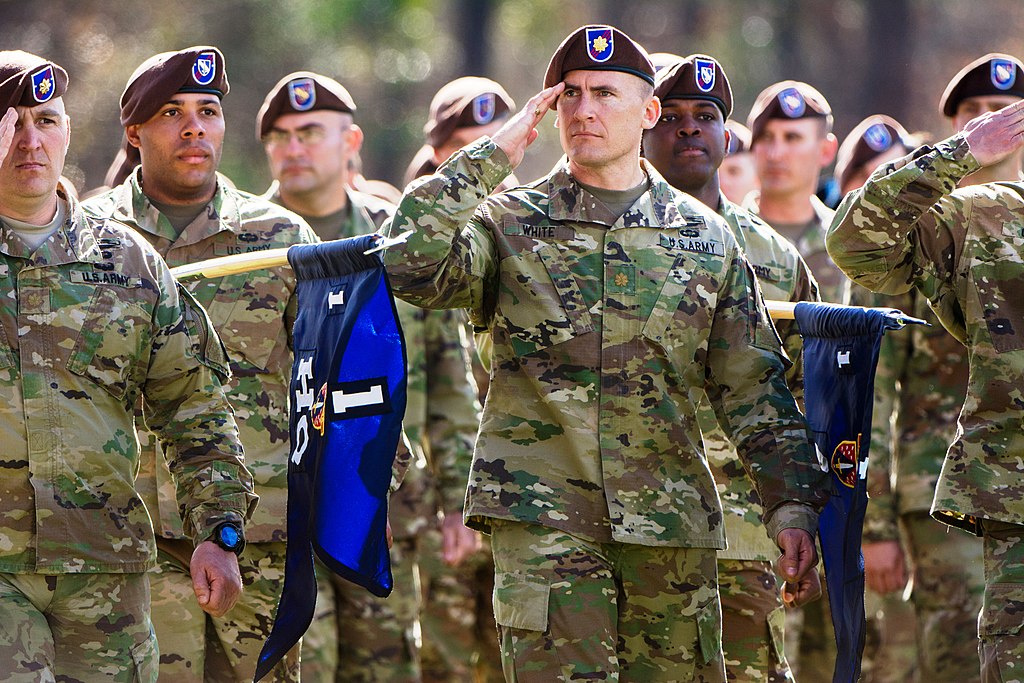It has been nearly a decade since Muammar Gaddafi was ripped from his hiding place in Sirte’s sewers and killed by Libyan rebels. Nine years later, and what started out as a revolution against a decades-old dictatorship has evolved into a prolonged civil war fueled by foreign war profiteering.
On both sides of the conflict, foreign mercenaries—often recruited from vulnerable populations in other war torn countries—have served as a decisive tool in the conflict. Since 2014, Russia and Turkey have competed for influence in Libya through mercenary proxies within the Libyan National Army (LNA) and Government of National Accord (GNA), respectively.
However, unlike the Kremlin’s covert ties to mercenary groups through private military corporations—most notably, the infamous Wagner group—Ankara has been more open about its support for the UN-recognized GNA.
In January, the Turkish parliament voted in favor of deploying military forces to Libya’s Eastern Front in a bid to support the GNA’s resistance to military strongman Khalifa Haftar and the LNA’s campaign to take Tripoli. Since then, the GNA has made significant gains over the LNA, recapturing territory in Western Libya once occupied by Haftar’s forces and pushing the front lines further east.
The GNA, backed by Turkish-funded mercenaries, has left devastation in its wake in its eastward push. Allegations of “revenge killings” and widespread looting have emerged from the cities taken by the GNA in recent months.
International observers have accused Turkish-funded mercenary units of using child soldiers within their ranks, especially Syrian children coerced into joining for promises of high wages as a soldier on the front lines in Libya.
Libya has shown that Ankara is willing to follow the Kremlin’s model for international diplomacy, favoring the use of covert mercenaries and political interference as a means of extending its influence. However, whereas Moscow has continually denied involvement in such operations, Turkey has broken with precedent by openly violating international law in pursuit of its agenda.
The war profiteer pipeline
When Field Marshal Haftar broke with the GNA, his subordinates in the LNA followed suit, leaving the GNA with a skeleton crew of a military. Composed primarily of a network of loosely-connected militia groups, the GNA’s forces have often been accused of offering quarter to Islamist extremists, leading to a breakdown in the GNA’s relationships with Egypt and the UAE.
Since then, the GNA has relied on the foreign support of the Turkish government under President Recep Tayyip Erdogan. Initially, Turkey provided the GNA with crucial military equipment, including anti-aircraft guns, armored vehicles, and self-propelled artillery. Recently, Turkey has taken on a more direct approach, bankrolling the GNA’s efforts to bolster its ranks through mercenary recruitment.
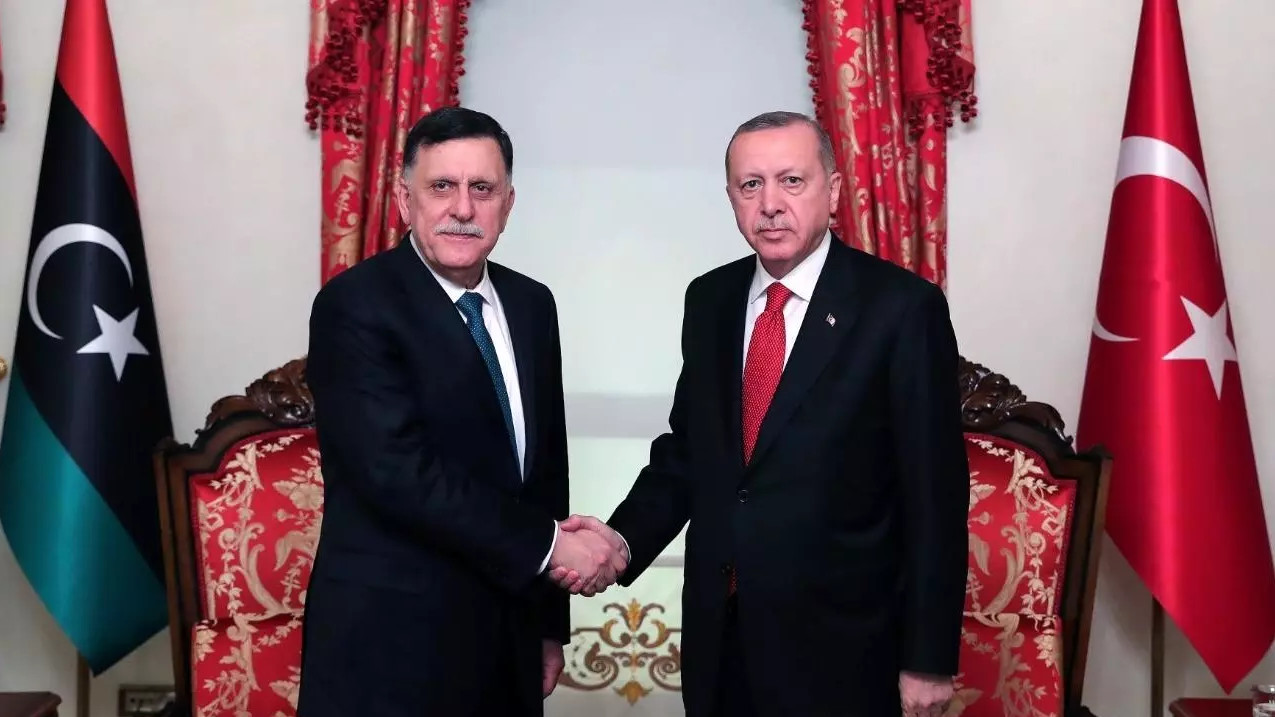
In searching for mercenaries, both Moscow and Ankara have laid sights on their previous target for military adventurism: Syria. Both sides have exploited the poor economic conditions in war-torn Syria in order to coerce former soldiers and rebels to join the fray in Libya as soldiers of fortune.
In Syria, Ankara, Moscow, and their respective local allies still widely advertise promises of high pay for mercenaries willing to fight in Libya. Overnight, a Syrian mercenary could go from earning $46 a month in Afrin to $2,000 a month in Tripoli, or so the recruiters say. For thousands of potential recruits in war-torn Syria, the pay was more than enough to justify a stint as a foreign fighter in Libya.
By June, nearly 12,000 Syrians had taken up the offer, being transported to Libya to serve on the front lines of an ever-escalating conflict. However, many of these volunteers would only come to realize the horrors of the conflict in Libya after arriving.
Among these fighters are not only ex-rebels and military deserters, but also hundreds of child soldiers and impoverished civilians with little hope for a sustainable future in their conflict-devastated home country.
According to the Syrian Observatory for Human Rights, fighting in Libya has killed more than 351 Turkish-backed Syrian mercenaries—among them, at least 20 children.
Warriors without restraint
Over the course of the conflict in Libya, all parties involved have faced allegations of war crimes. Civilians, healthcare workers, journalists, and refugees have all become legitimate targets as the civil war intensifies. Between the LNA and the GNA, war crimes have marred the Libyan landscape, with civilians bearing the greatest cost.
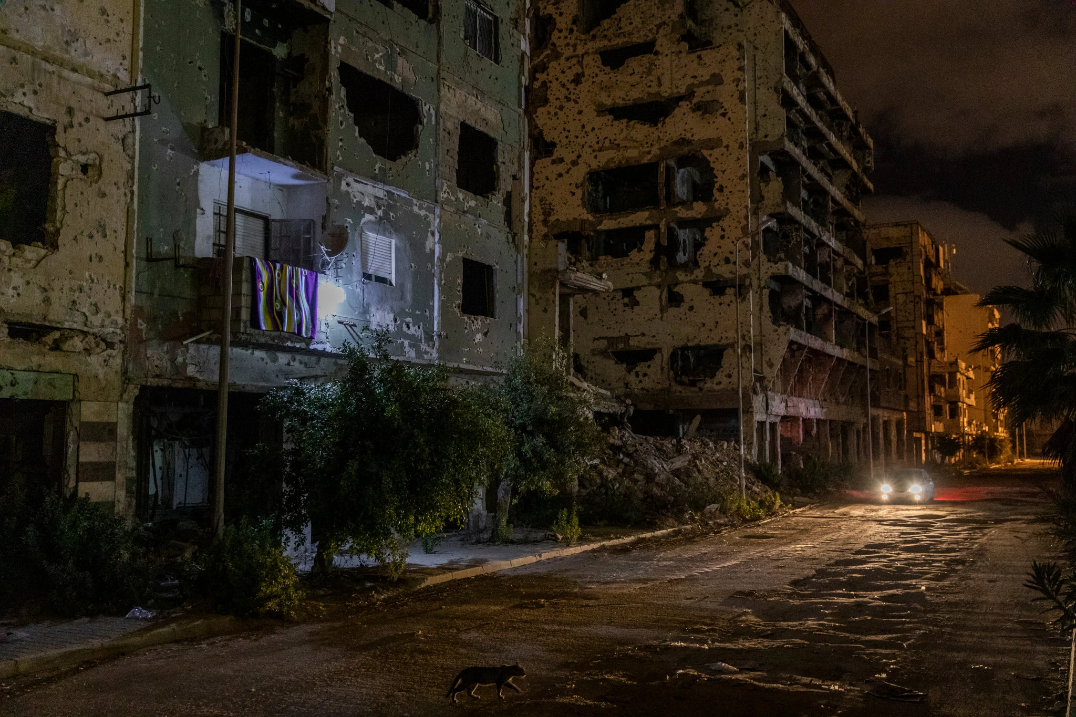
In cities recently recaptured by the GNA—and their Turkish-funded mercenary allies—accusations of systematic violence against civilians are widespread. In the wake of the GNA’s counteroffensive in formerly-held LNA territory, allegations of “revenge killings” in the recaptured cities have raised concerns over mercenary outfits’ willingness to comply with international law.
In the days following the retreat of LNA-aligned forces, videos began to surface online showing widespread looting and property destruction in the newly “liberated” cities. The United Nations has since argued that many of these incidents appeared to be “acts of retribution and revenge” by the GNA and its allies.
In its stronghold of Tripoli, human rights groups have accused the GNA of exploiting migrants and refugees, using them both as sources of labor and as human shields against the LNA’s extensive shelling campaign.
For its part, the LNA has also faced accusations of crimes against humanity, ranging from indiscriminate bombing campaigns to abductions and disappearances. However, unlike Turkey, the LNA’s supporters—namely, Russia, the UAE, and Egypt—can hide behind the defense of plausible deniability when LNA-affiliated mercenary outfits commit atrocities.
In Ankara’s case, allegations of war crimes by mercenary outfits directly connected to the Turkish government reflect poorly on the Erdogan regime itself. Rather than being the actions of unlawful soldiers of fortune, crimes against humanity committed by Turkish-funded mercenaries are instead seen as the result of state-sanctioned violence.
The Kremlin model
The Kremlin’s history of interfering in the political affairs of other countries is widely known; however, this has often been accomplished covertly, without Moscow getting its hands dirty. Ankara has broken with this precedent, openly violating the international arms embargo on Libya and bankrolling an increasingly influential mercenary force in the North African country.
As Erdogan emulates the aggressive diplomatic strategy of Russia’s Vladimir Putin, mercenaries in Libya have become the newest currency for foreign powers to purchase influence.
Libya, as one of the most prominent theatres for the proxy war between Turkey and its rivals, has seen its political future fall into the hands of various mercenary outfits, concerned more about profit margins than conflict resolution.
As a result, as Turkey and Russia compete to become Libya’s kingmaker, the civilians caught in the middle face atrocities by both parties, with no end in sight.

